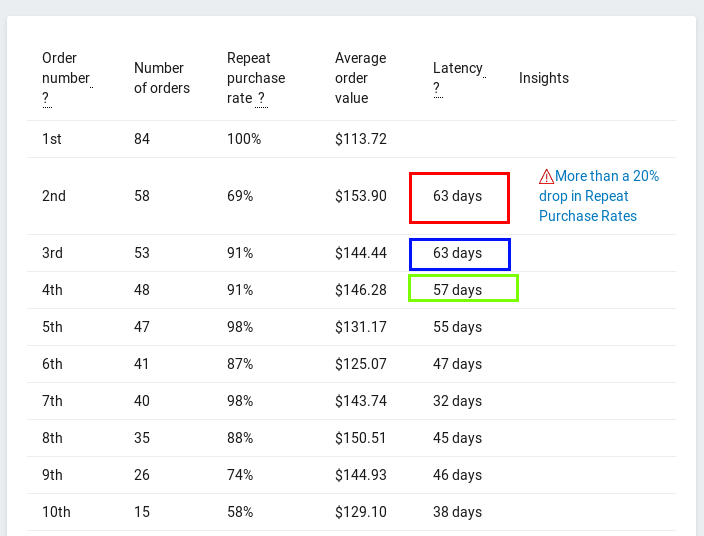Customer Josh wrote in:
I am focusing on improving our retention rate and looking at some "win-back" campaigns. Before I implemented the emails I wanted to see if I could get all the key data from an app rather than organising the data myself.
For example -
Based on our store analytics if a customer hasn't purchased again after 90 days it would mean we have lost them - we can then create our win-back campaign around this data.
Josh describes win-back campaigns very well.
They are marketing campaigns that are only sent to customers who haven't purchased recently and seek to reduce customer defection. Or as the name says, to win the customer back.
Customer purchase latency, or just latency, is the average time since the last order for a customer in that segment (based on number of orders).
When you have the latency values for your store you can easily create and tune your win-back campaigns to target the best customers at the best time.
I've attached an example from my test store so you can see:

The red box shows it's about 63 days between 1st and 2nd orders, so you'd want a win-back to kick in after that.
The blue box shows 63 days also (coincidentally) for the 2nd to the 3rd order, so you could re-use the same win-back or setup a custom one to catch this segment.
The green box shows 57 days between the 3rd and 4th order.
If you don't want to segment your win-backs for each stage of a customer's lifecycle, you could use the first one because all people will go into that segment.
Since purchase latencies usually speed up (i.e. people buy faster), the 63 day one would catch a lot of people in later stages too.
Repeat Customer Insights can help you analyze the data for a win-back campaign. With its multi-step customer lifecycle analysis you can tailor any campaigns for one-time customers vs two-time vs any other.
Eric Davis
Do your holiday customers over or under-perform?
Big sales numbers look great in November and December but they can hide your true performance. Get the facts on how your winter holidays stack up with Repeat Customer Insights.